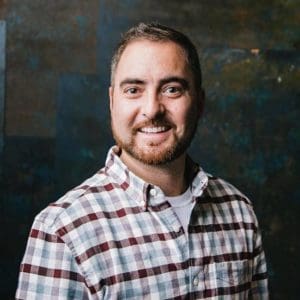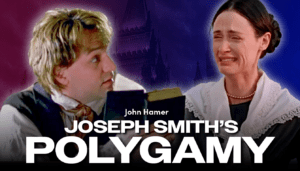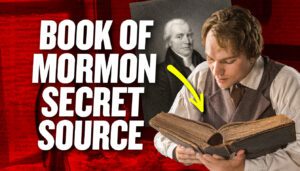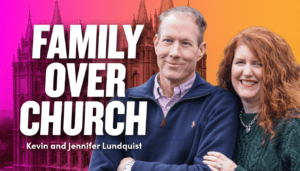 In this episode of Mormon Stories, we interview Noah Rasheta — the Executive Director of the Foundation for Mindful Living and host of the Secular Buddhism podcast. This meaningful and compelling interview covers:
In this episode of Mormon Stories, we interview Noah Rasheta — the Executive Director of the Foundation for Mindful Living and host of the Secular Buddhism podcast. This meaningful and compelling interview covers:
- Noah’s early life as an orthodox Mormon believer and his struggle with the thought that with all of the good in the world, is it possible that the path set forth by the LDS Church is the only valid one?
- How he felt uneasy and shaken as he broadened his study of the Mormon faith
- His description of his transitioning process, his fears of leaving the LDS Church, and “coming out” as a non-believer to those in his faith community
- How as his transition progressed, his view towards people became more kind, warm, and compassionate
- His studies of Buddhist philosophy and the development of a purpose-driven life by integrating Buddhist teachings, modern science, humanism, and humor
Notes:
- https://secularbuddhism.com
- Noah’s Secular Buddhism podcast: https://soundcloud.com/secularbuddhism
Part 1
Part 2
Part 3
Part 4
Part 1:
Part 2:
Part 3:
Part 4:




3 Responses
John, thanks for hanging in there on the questions about belief. It took asking the questions many different ways, but you finally got Noah to acknowledge he “doesn’t believe.” (at 23:46) instead of the rather vague the belief is irrelevant answer that was floating around for a while.
I don’t see anything wrong with a buddhist saying “I don’t believe.” I think even old Thich Naht Hahn, while extending a respectful attitude towards christianity, acknowledged its a false narrative about reality.
I mean, if your kid asks “Dad, was there really a tortoise and a hare that had a race?” Is someone going to answer, “you know Son, it’s irrelevant to me if there was or not . . . .” I don’t think buddhism has rejected science. I don’t think acknowledging facts is the type of discrimination that causes problems. We do turn on the light switch when we walk into a dark room – we make that decision based on facts.
I relate to the idea of not embracing conclusions without sufficient evidence, but I think suspending judgment in the face of powerful evidence can leave a person in a puddle of inaction and absurdity.
Doesn’t a child deserve an honest answer to an honest question?
So, John pushing that question about beliefs eventually led Noah to disclosing what is obvious, but which was being concealed —– he doesn’t believe.
It’s honest. It’s based on facts. It’s relevant to a person – a child – who is asking a question.
I see no problem with a simple, honest answer.
Really admire Noah and that he patiently and articulately described his thoughts, process and experiences, his kindness and his nonjudgmental attitude.
Noah you have wisdom beyond your years
You have found a peaceful way to move forward with your life. What a great feeling
To love life. So much of what you think and your attitudes bring peace–Sharing your way of looking at life with us is inspirational and insightful. I too have finally come to the point of agreeing with you on many things
But let’s be honest —this came after a devastating heartbreaking and grueling experience of discovering the church was false–and deciding who and how to share that
You have made it to the other side of the grieving process
But I felt we skipped over that part of the experience too quickly
I would have appreciated more openness and more discussion about specific topics especially historical facts–that destroyed your testimony. John had to press you repeatedly to try and be more specific and forthright about it–and you were usually successful in avoiding specifics and being vague. I’m so glad he continued to press you for answers
I actually would’ve appreciated you saying that you would rather not discuss specifics
Because you are obviously avoiding them
That’s OK if that’s what fits into what you need and want in your life right now
I realize discussing those subjects openly –and taking a vocal stand against foundational beliefs could have negative consequences—especially for your Family relationships and membership in your ward
You do realize that many people have been excommunicated for speaking openly about their disbelief and the specific reasons why??
It is clear that your first priority is having a unified peaceful family–and respecting and supporting your wife …..her lifestyle and her family–so I hope this interview does not cause any problems for you
But I had to question if you had what most of us experience— a deep need to be validated in your grieving process and to be understood by others ????
On the surface it seemed that you did not have to go through this horrible shock and grieving devastation that most of us do
You tallked so little about it
It seemed that you did not have that deep need to share with others the reasons for your grief–The specific things that were so disturbing—that destroyed your testimony
I think you mentioned that it was very personal…..
Maybe you didn’t have that devastating heartbreaking lonely experience of discovery—or a need to be understood by those you loved
At first it seemed you skipped over that process and went directly to your peaceful meditation
But I realize the difference with your experience is that you had both a brother and parents who listened and understood exactly what you were going through validated it and supported you and agreed with you
Most of us don’t have someone–especially a loved one– to turn to that gives us such validation and support
If you had not had those Close family members to turn to I think your struggle would’ve been much different
It is clear that you made a conscious decision not to share that experience or the reasons why you left the church with very many people including your wife’s family and ward members– but rather to focus more on peaceful loving acceptance of different beliefs and opinions–you chose to put aside your anger and pain and a sense of betrayal–to create a sense of calm and acceptance with those people in your life
So in a sense you withheld your deepest feelings from many people-and probably still do–to keep peace
The problem is you will have to be very careful about speaking out about your opinion that specific things are not of God and deeply disturbing–in order to keep peace with your wife and your family and your ward
One last comment or question….
What will you say to your daughter as she approaches baptism and all that entails— especially as a seven-year-old preparing for that every Sunday –as a commitment to the church and having her sins washed away?? Etc
I think you’re going to find out sooner than later that you will want to be more an example of your personal beliefs by your actions and words with your children–
Letting them see the difference between your beliefs and your wives beliefs by your actions
Perhaps you’ll come to a point where you do not feel authentic in participating in a church you do not believe in–so that your child can see she has choice–do as daddy or as mommy?? Each of you an example of different choices
This can be a very difficult situation for you
Or perhaps you will let her follow along the Mormon religion until she is 16 or 18 and then when you feel she is ready give her the choice of being a member or not
It is a little unclear where your future will take you–but you seem content to take a step at a time
And that is the buddha way right???
Be calm and find joy in the moment!!!!
Love it❤️